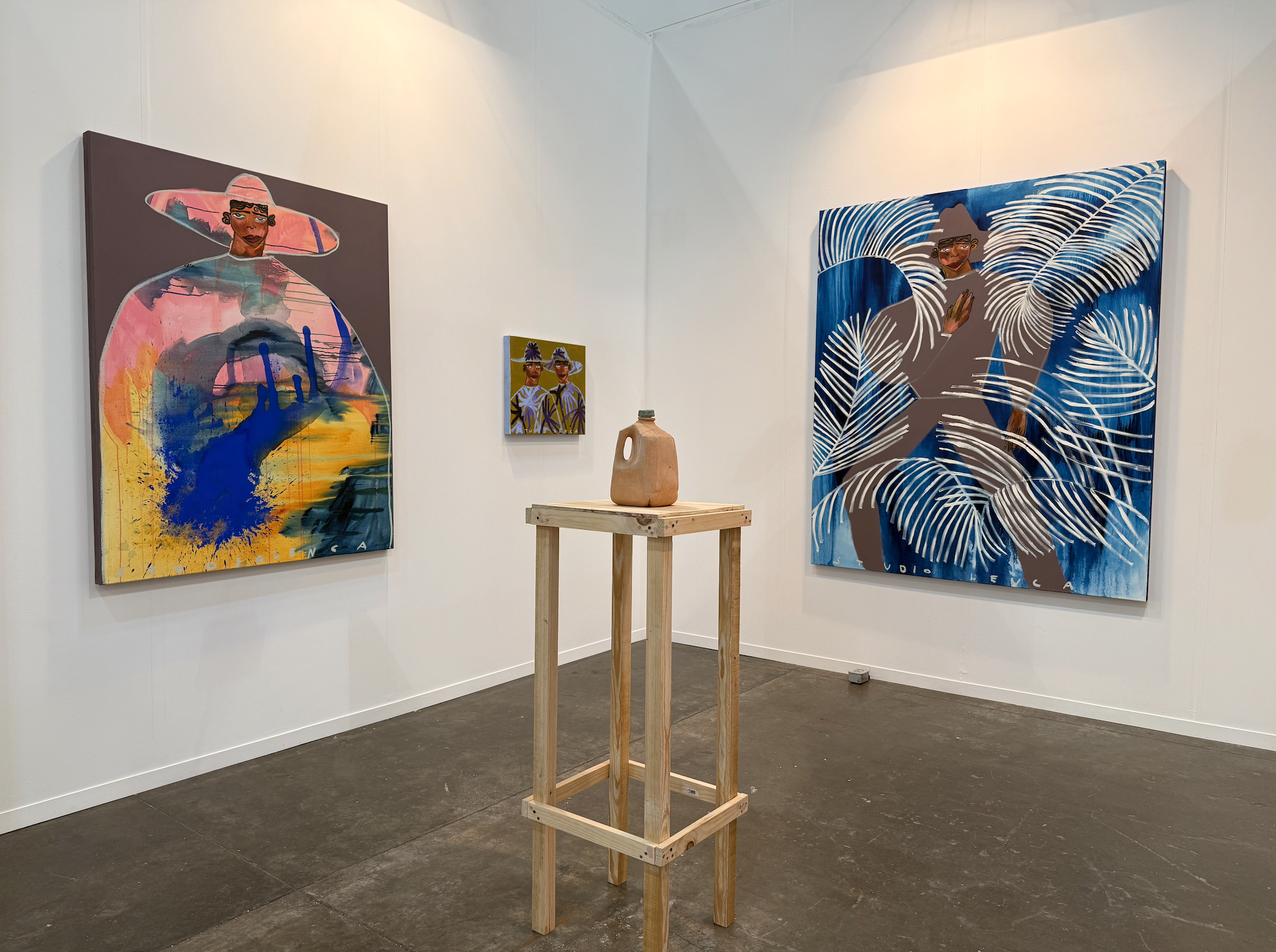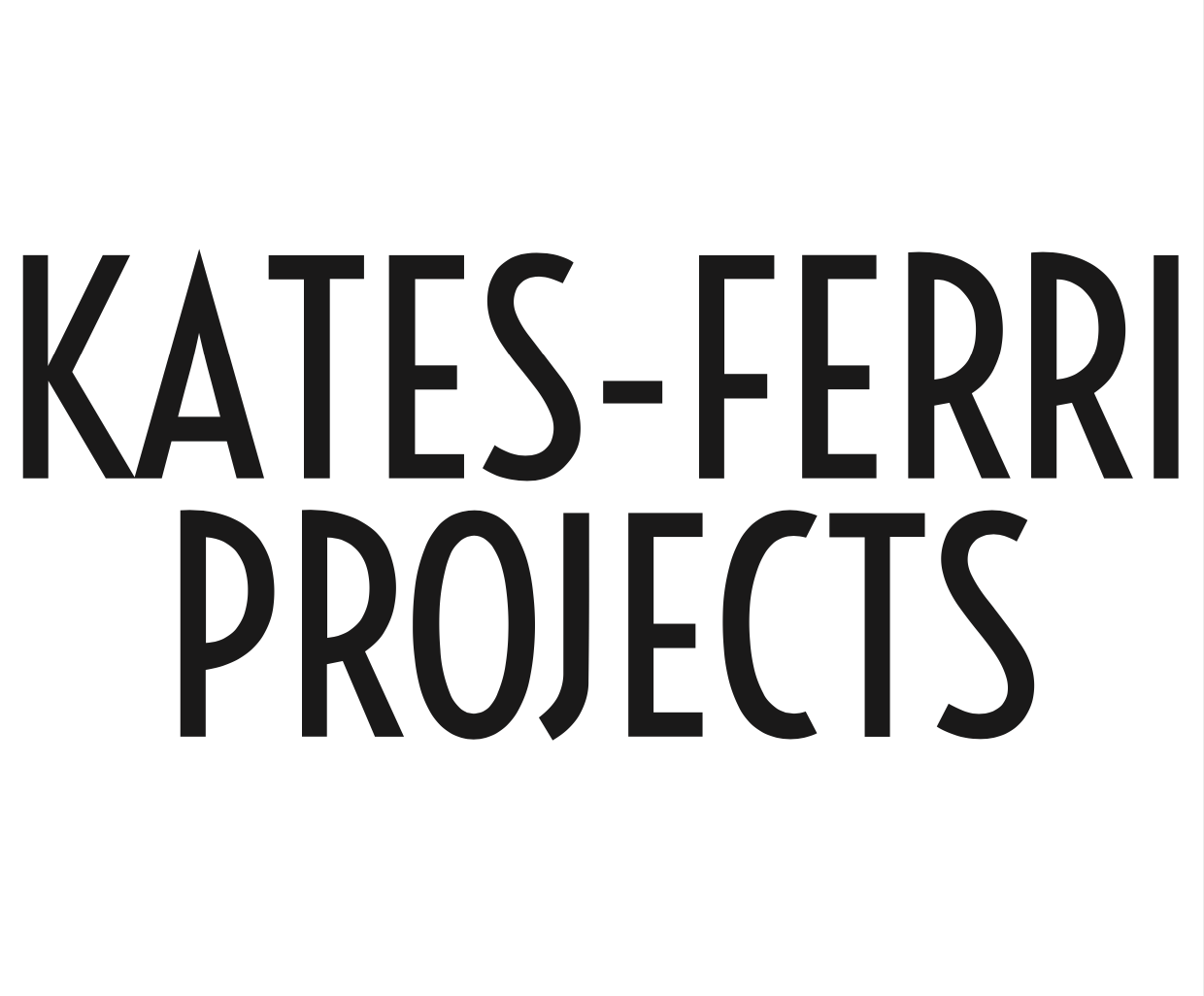Paisajes de Paz/Landscapes of Peace: Studio Lenca
Zona Maco Mexico Arte Contemporaneo, Booth EJ32 February 5 - 9, 2025








KATES-FERRI PROJECTS in partnership with Studio Lenca, presents a new body of work including 14 paintings at Zona Maco in the special projects section “EJES” booth #EJ32 curated by Bernardo Mosqueira titled Paisajes de Paz / Landscapes of Peace.
This new series depicts lush landscapes and richly adorned figures, addressing themes of belonging, resilience, and identity in the context of displacement and exile from the artist’s homeland.
Central to the series are portraits, a framework for the artist’s practice. Loosely based on the artist’s family, these figures move through imagined landscapes. Dressed in flamboyant hats and brightly coloured suits, their presence represents a “queer wilding” of spaces historically associated with trauma and secrecy, reclaiming them as sites of freedom and vitality. These bold figures resist invisibility, embodying joy, pride, and defiance against systemic exclusion and forced assimilation.
The landscapes serve as metaphors for connection to the earth and a collective sense of belonging. By layering personal and cultural narratives, Studio Lenca confronts dominant ideologies, transforming them into expressions of visibility and liberation.
Amparo Marroquín (2017) writes of El Salvador: "mine is a fugitive country, which reinvents itself at every border in a piecemeal way" (p. 54), a concept that resonates with the artists practice, emphasizing the flow and resilience of identity amidst transnational memory practices of those who have been displaced.
Studio Lenca confronts exile as a dislocation from “the solidity and the satisfaction of earth” (Said, 2000, p. 173). Through these works, the artist explores reconciliation and reconnection, drawing on his own experiences of growing up queer and displaced to cultivate new understandings of identity and place. The work encourages the examination of complex pasts, shaped by U.S. power, fostering intergenerational dialogues and practices that honour histories of resilience and resistance.
Against the current backdrop of shifting political landscapes and far right ideologies in El Salvador and beyond, this celebration of difference takes on profound urgency. These themes are universally felt: “To be rooted is perhaps the most important and least recognized need of the human soul” (Weil, 1952, p. 41). Studio Lenca’s practice engages with this tension, reimagining fractured histories and contested identities as sources of strength, beauty, and connection.
Central to the installation of Paisajes de Paz is Border Vessel, a sculptural work that further explores the materiality of contested spaces. Using indigenous pottery techniques and materials from the Rio Grande riverbed at the US/Mexico border, Studio Lenca created vessels that reflect fractured memories and histories. The clay’s instability, resulting in cracks and ruptures, evoking maps, fault lines, and the journeys of migrants. These vessels, shaped to mimic plastic gallon water jugs, incorporate jade from El Salvador, weaving personal and cultural narratives into the work.
Paisajes de Paz is a tribute to cultural resilience and an invitation to envision healing and transformation. Through richly layered compositions, the artist creates a vocabulary that speaks to displacement, belonging, and the act of reclaiming spaces as a form of resistance and empowerment.
About the Artist
Studio Lenca is a Salvadoran artist whose work examines migration, identity, and the diasporic experience. Drawing on his undocumented journey and lived realities, he employs vibrant colors and bold forms to create immersive works that confront systemic erasure and celebrate the resilience of marginalized communities. His practice amplifies overlooked stories, reclaiming agency for those navigating the intersections of displacement and belonging. Studio Lenca is based at the Tracey Emin, TKE Foundation in Margate, UK. The artist has an MA from Goldsmiths University of London.
References
Marroquín, A. (2017) Memory Practices and Transnational Mobility. In Cultural Studies of the Global South. London: Sage Publications, pp. 54–56.
Said, E.W. (2000) Reflections on Exile and Other Essays. Cambridge, MA: Harvard University Press.
Weil, S. (1952) The Need for Roots: Prelude to a Declaration of Duties Towards Mankind. New York: Harper & Row.
